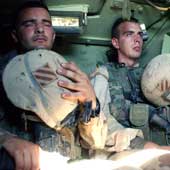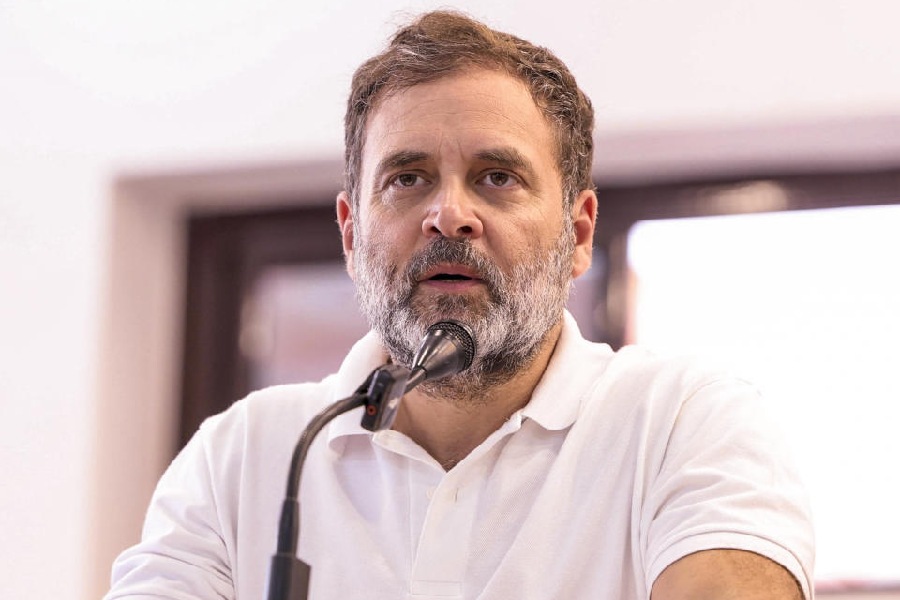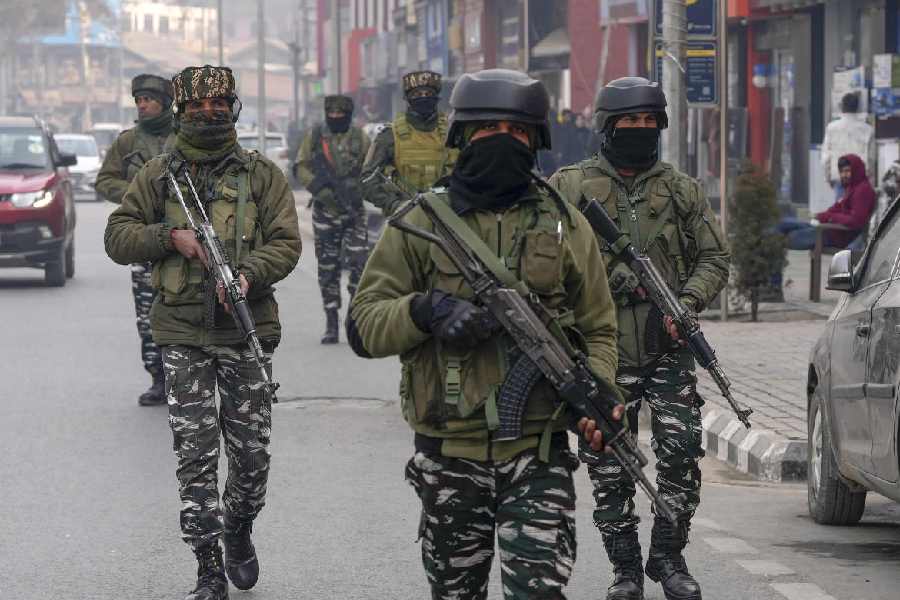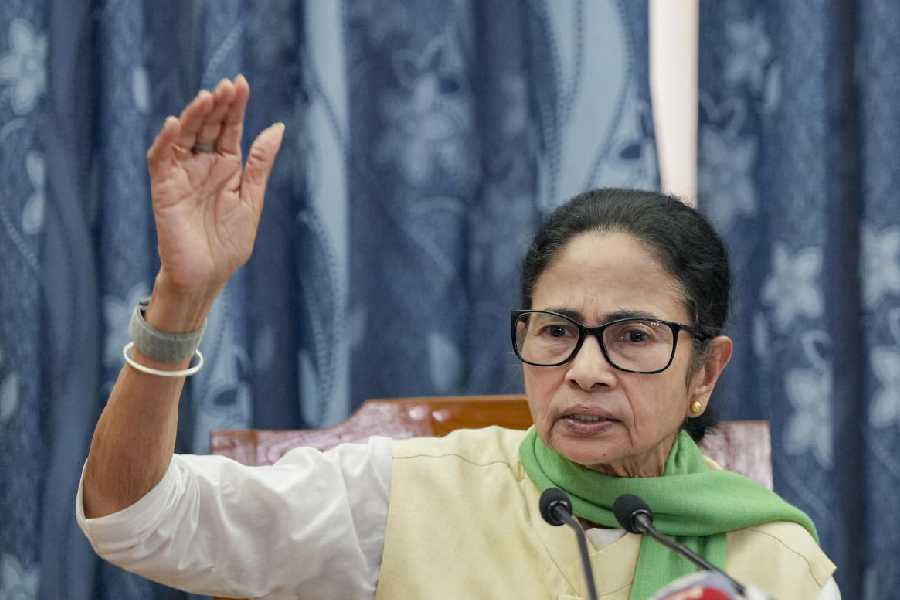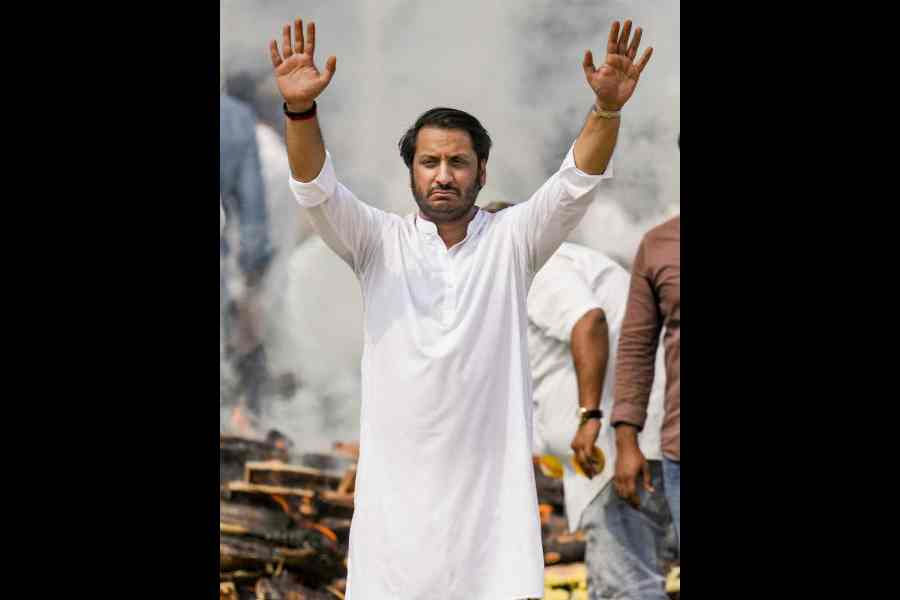|
|
It is unlikely that any of those who attended a crucial July 14 meeting of the cabinet committee on security realized that they were influencing the course of history in the 21st century. In the wake of that meeting, which decided against sending Indian troops to Iraq without the sanction of the United Nations, there was a flurry of activity worldwide around Iraq, largely unnoticed in New Delhi, caught up in Ayodhya and other usual domestic concerns.
A day after the CCS decision, the French president, Jacques Chirac, made it clear to the Czech president, Vaclav Klaus, that sending French soldiers to Iraq “cannot be imagined in the current context”. The Americans, too embarrassed to broach the issue directly with Chirac after a bruising dispute over the war, had sent Klaus to Paris to discreetly probe the French leader’s mind, according to the grapevine in Washington.
The following day, the German foreign minister, Joschka Fischer, who was being hosted in Washington by the American secretary of state, Colin Powell, echoed the views of India and France on troop deployment. Fischer called for a trans-Atlantic debate to evolve a common strategy to deal with post-war Iraq and other security issues. As the week advanced, the Russian foreign minister, Igor Ivanov, tried to inject some sense into Washington’s hardliners that a new UN resolution was “the most likely way of securing the participation of a large number of countries for the sake of the situation in Iraq”.
This will be hard on the Bush administration. For the vice-president, Dick Cheney, the Pentagon’s policy man, Paul Wolfowitz, and others, Iraq was the first step towards remaking the world in America’s image, starting with west Asia. They had enthusiastically spurned the UN and treated it as an inconvenience to their plans. To have to go back to multilateralism even before the United State of America’s one foot was firmly planted on Iraqi soil is tantamount to accepting failure.
The CCS meeting on July 14 is historic because a lot of things could have turned out differently if only Atal Bihari Vajpayee’s government had agreed to send troops to northern Iraq. Not that Chirac’s unequivocal rejection of any idea that the French should send troops to Iraq was contingent on an Indian decision. Neither Fischer’s call for a return to multilaterlalism in Washington nor Ivanov’s advice to the Bush administration was the result of India’s action.
But India’s decision to seek UN cover sensitized the international community to the near-impossible task faced by the US of getting any worthwhile military force from any part of the world to serve in Iraq as long as it was under occupation and without explicit support from the UN. The New York Times summed this up most appropriately when it said India’s jawans would have been “a bellwether for numerous other developing countries” if they had gone to Iraq. One American dictionary describes a bellwether as “a male sheep, usually castrated, that wears a bell hung from its neck and is followed by a flock of sheep”.
It is reasonable to imagine that for most Indians, this is not a state or condition which they see as desirable for the men of their military. If India had acceded to the Bush administration’s request for troops, French, German or Russian insistence on UN involvement in Iraq’s stabilization and reconstruction would have become somewhat irrelevant. At one stage in the run up to the war, the Americans desperately wanted the French or the Russians to use their veto in the UN security council. Which was why they, along with the British, tried to put together a second resolution — of any wording — before the council.
If either of the two anti-war permanent members of the council had used their veto against the second resolution and the US then went to war, it would have demonstrated to the world how ill-advised that veto was — and irrelevant. But just like the Vajpayee government last week, leaders in Mexico, Chile, Guinea, Angola, Cameroon and even Pakistan stood up for principles in the face of Washington’s blandishments and made a French or Russian veto unnecessary.
In the event, there was no second resolution and the US went to war defying the will — and the collective wisdom, as it turns out — of the international community instead of the “no” vote of one or two members of the security council. India, like these non-permanent members of the security council earlier this year, put principles before everything else last week. Mexico and Chile stood to lose by not supporting the US either in the security council or during the war. And they were punished by Washington for their stand in the UN and outside it.
India, on the other hand, has not suffered for its refusal to send troops to Iraq. And it will not suffer any consequences as long as South Block plays its cards right. The invitation to Ariel Sharon to visit New Delhi in September is a signal, in part, that on Raisina Hill, there has been consideration of what cards India should play with the Bush administration, following the CCS decision. Israel, after all, is the only country which has the writ to do anything it wants to in Washington. America’s Jewish community can make any US administration or the congress bend to its will.
But by refusing to let Indian troops serve in Iraq except as blue-helmeted UN peace-keepers, or at least under explicit UN sanction, India has given a new lease of life for international law and institutions. With that one decision, the Vajpayee government restored to Indian foreign policy some of the glory it had in the Fifties and Sixties and overnight made New Delhi considerably more relevant on the world stage.
Since the decision by the same government in 1998 to conduct nuclear tests, this was probably the most important foreign policy step attempted by New Delhi. Last week’s decision on Iraq is being compared by those with memories of Indian diplomacy in the early years of independence to Jawaharlal Nehru’s resolve to play a role in Korea or to the first prime minister’s contribution to de-colonization.
It started a process which has left the Bush administration with only two options. One is to eat humble pie, go back to the UN and seek a face-saving bail-out by the international community from what General John Abizaid, the new head of the US army’s central command, calls “a classical guerilla-type campaign against us”. The other option is to pretend that all is well, gather troops in low hundreds — rather than in thousands — from countries that are vulnerable to US pressure and spin such arm-twisting to the usually compliant sections of America’s visual media as proof that the “coalition of the willing” which went to war in Iraq is healthy and well — even growing in the aftermath of a victory against Saddam Hussein.
According to Bush administration insiders, the first option, howsoever bitter, is being advocated by Powell and his deputy, Richard Armitage. Powell’s position is not surprising. “I had gone off to Vietnam in 1962 standing on a bedrock of principle and conviction,” Powell wrote some years ago in his autobiography, My American Journey, “and I had watched that foundation eroded by euphemisms, lies and self-deception.” Reading the cables on Iraq that land on his desk every day, the secretary of state must be having a sense of having seen all this before.
The alternative is easier said than done. Picking up troops from here and there in hundreds will not be a problem for the US military, which has solid links with their counterparts in many countries. Besides, there are the east Europeans who are all too keen to establish such links in the post-Warsaw Pact era. So the Hondurans have agre- ed to send precisely 370 of their men while the Nicaraguans, the Salvadoreans and the Dominicans will be in Iraq in similarly small numbers. But the irony of such an effort to build democracy and civil society in Iraq is that some of the armies which are going to Iraq have a history of rape, torture and murder in the shadow of which the notorious My Lai massacre in Vietnam in 1968 would appear to be a minor war crime. Maybe, when groups of men from some of the armies with such a sordid history of human rights go on patrol in Iraq, either the British or American troops may walk behind the men, their guns drawn, to ensure that Iraqi civilians are not raped or robbed.
As for the east Europeans, one incident illustrates the gap between the leadership of what the US defence secretary, Donald Rum- sfeld, prefers to describe as the new Europe and its people or their army. The Czech defence minister went to Iraq and was frankly disgusted by the reluctance of his troops to aid in building democracy there. In the hope of putting the men to shame, he told his troops that those who did not want to stay on and fight could return home on the very aircraft which had brought the minister to Iraq. No sooner had the minister finished his sentence, several of the men ran to their camp to pack their belongings.
The Bush administration’s ability to spin the Iraq story has suffered a series of setbacks in recent weeks. The White House press secretary, Ari Fleischer, and Rumsfeld’s chief public relations person, Victoria Clarke, have both left: maybe they saw the writing on the wall. Besides, there is a point beyond which the reality cannot be altered even for a willing media. The following e-mail from an American soldier in Iraq, which is now being widely circulated among army wives in the US, tells a story which is beyond spin.
“We are the forgotten and betrayed soldiers of the 2nd Brigade,” the e-mail said, “Our morale is not high or low, it is non-existent. Where is the honour and integrity the Army preaches in basic school? Our troops and our equipment are worn out...[Major General Buford] Blount and his staff are living at a Baghdad palace and eating at the Baghdad International Airport Burger King, while soldiers suffer from diarrhoea because they have not had a fresh vegetable in more than a month...What is our reward? We are treated like farm animals...Our men and women deserve to be treated like the heroes they are, not like neighbourhood mongrels”.

